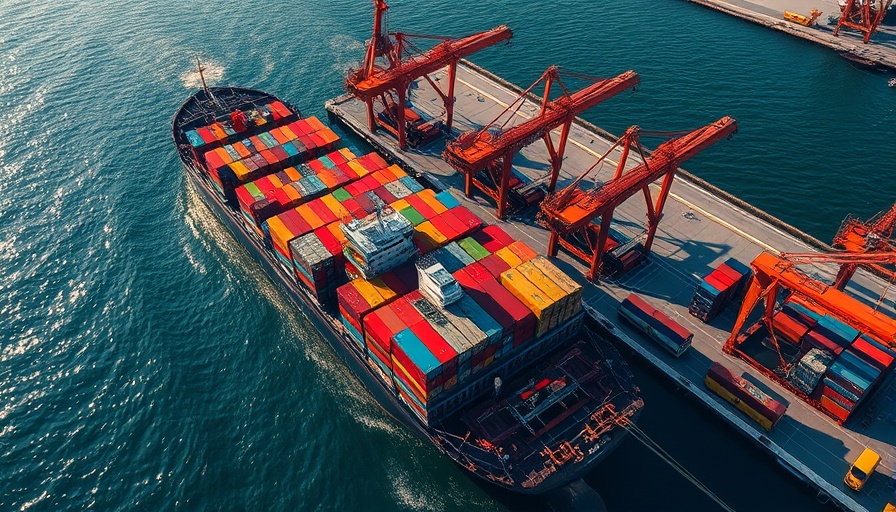
China's Bold Move: No More Tariffs on African Imports
In an unprecedented step towards enhancing trade relations, China has announced it will eliminate tariffs on goods imported from 53 African nations. This initiative, first introduced at last September’s Forum on China-Africa Cooperation (FOCAC), aims to welcome quality African products into the Chinese market. With total trade between the two regions reaching nearly $300 billion in 2024, this decision is poised to reshape the landscape of cross-border trade.
The Significance of This Trade Agreement
China and Africa's cooperation has blossomed, particularly emphasized by Foreign Minister Wang Yi’s remarks on fostering unity and shared development. The latest negotiations serve as a reaffirmation of the African Continental Free Trade Area (AfCFTA) goals, pushing for economic synergies across borders. Wang Yi's call for the combined strength of Africa's and Asia's populations indicates a strategic vision for shared growth, positioning both regions as pivotal players in the global market.
A Game-Changer for E-Commerce and Trade
This agreement represents a substantial opportunity for exporters and importers involved in e-commerce and traditional trade. With leading economies like Nigeria and South Africa included, businesses can anticipate a surge in demand for African goods in China, leading to new market opportunities. This shift not only benefits suppliers in Africa but also enhances the diversity of products available in China, bolstering the digital economy.
Implementing The Change: What’s Next?
While the timeline for the tariff elimination remains unspecified, stakeholders are keen to implement these changes swiftly. Exporters should prepare to adapt to increased competition and potential shifts in market dynamics. Furthermore, e-commerce platforms might want to capitalize on this shift by showcasing African products, facilitating smoother transactions between the continents.
The Excluded State: Eswatini
Interestingly, Eswatini is the only African nation excluded from this tariff exemption. This raises questions about inclusion and the broader implications for economic integration within the continent. Understanding why certain countries are left out could inform future discussions on trade policies and collaborations among African nations.
In sum, China's decision marks a pivotal moment in global trade, inviting all stakeholders including exporters, importers, and e-commerce entities to reevaluate their strategies. As opportunities unravel, staying informed and prepared will be key to success in this evolving market landscape.
 Add Row
Add Row  Add
Add 




Write A Comment